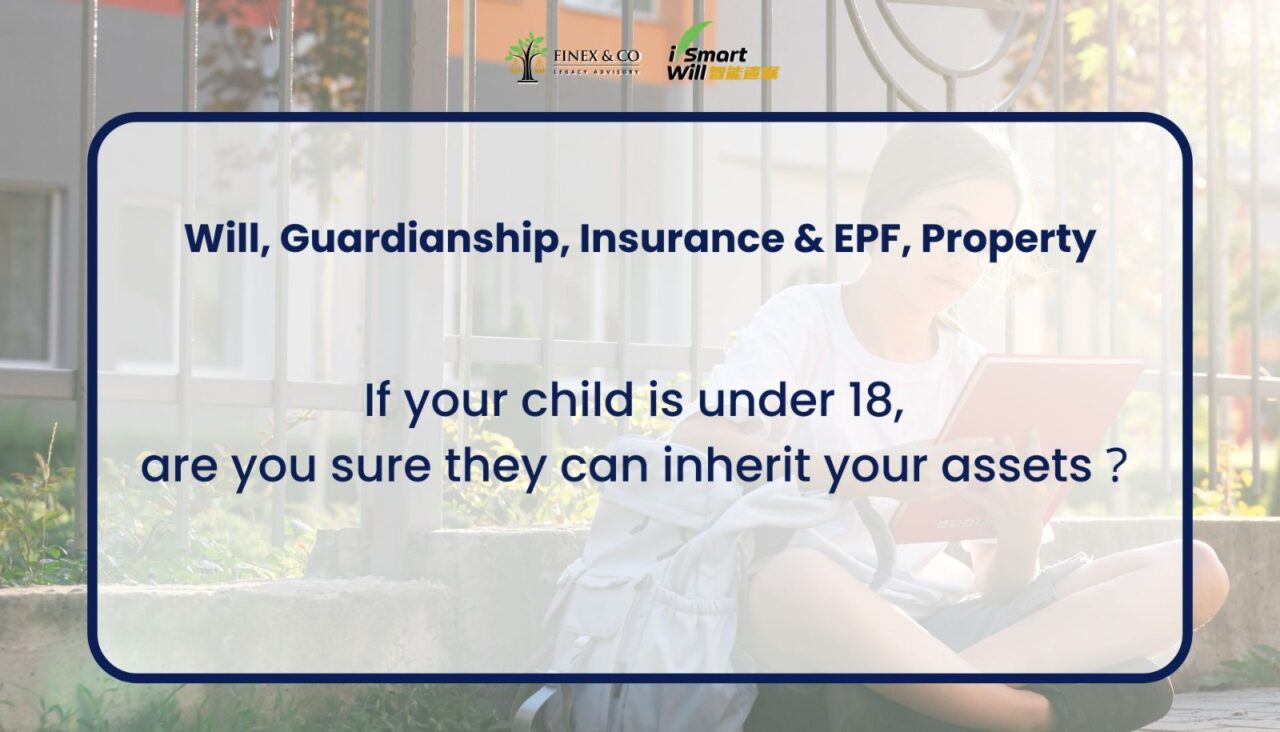Have you ever wondered what would happen if both you and your spouse passed away unexpectedly? Who would take care of your children? Would they be financially secure? In Malaysia, children under 18 cannot inherit money or property directly, which could create serious complications for their future if proper plans aren’t in place.
Let’s have a discussion on what you need to know about naming underage beneficiaries in your will, insurance nominations, EPF nominations, and property inheritance—and how to safeguard your child’s future.
- EPF Nomination: KWSP Holds the Funds Until Age 18
If you nominate a child under 18 as an EPF beneficiary, the Employees Provident Fund (KWSP) will not release the funds directly to them or their guardian. Instead:
- KWSP acts as a trustee, holding the money until the child turns 18.
- The guardian cannot access the funds unless KWSP approves withdrawals for specific needs (e.g., education or medical expenses).
- Once the child reaches 18, KWSP transfers the full amount to them.
Recommendations:
- To name your spouse as the beneficiary.
- Wish to have more control? Consider setting up a testamentary trust in your will.
- Alternatively, you may even name Amanah Raya Berhad as the EPF nominee and specify detailed instructions in the trust deed.
- Insurance Nomination: Who can collect the money on behalf of the child?
If the nominated beneficiary is a minor, the following individuals or entities may collect the money on behalf of the child, in this order of priority:
- Trustees– They have the legal authority to manage the funds for the minor.
- Competent Nominee (if no trustee is appointed).
- Surviving Parent (if no trustee or competent nominee exists) – The child’s living parent can claim and manage the funds.
- Public Trustee (if none of the above are available) –Amanah Raya Berhad may step in to safeguard the child’s interests.
Recommendations:
- Establish an insurance trust or a testamentary trust funded by insurance to provide structured payouts (e.g., monthly allowances, education funds) tailored to your child’s needs.
- Property Inheritance: Minors Cannot Own Property Directly
Under the National Land Code 1965, children under 18 cannot legally inherit property. Instead:
- The executor of your will holds the property in trust until the child reaches adulthood.
Recommendations:
- Ensure you appoint a reliable and trustworthy executor to handle circumstances where both husband and wife pass away.
- For greater control, set up a testamentary trust to specify how the property should be managed (e.g., rented, sold, or retained for future use).
- Why Appointing a Guardian Is Crucial
Please note that spouse will automatically become guardian of children. The appointed guardian will only come into place when both parents of children do not survive.
In the event of both parents pass away, the court will decide guardianship—potentially leading to family disputes. To prevent this:
- Formally appoint a guardian in your will to ensure your children are raised by someone you trust.
- Name a backup guardian in case your first choice is unavailable.
Without a clear appointment, custody conflicts may arise, causing emotional distress for your children.
Key Takeaways: Protecting Your Child’s Future
- Avoid direct EPF and insurance nominations for minors.
- Set up a testamentary trust to have more control on the asset distribution timing and conditions.
- Appoint a guardian to prevent custody disputes.
- Choose a reliable executor to manage property and finances until your child comes of age.
Since every family’s situation is unique, consult a qualified legal professional or estate planner to customize a plan that aligns with your wishes and safeguards your loved ones.















